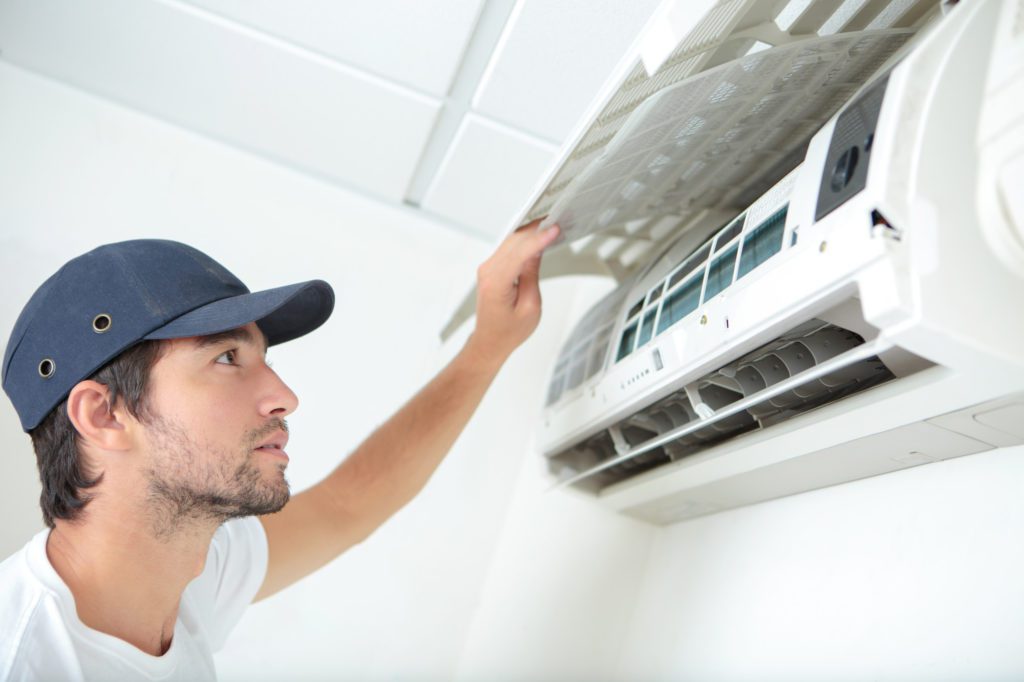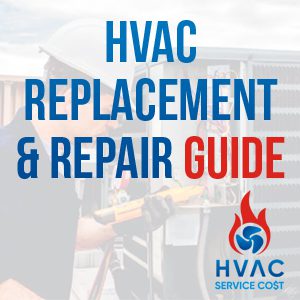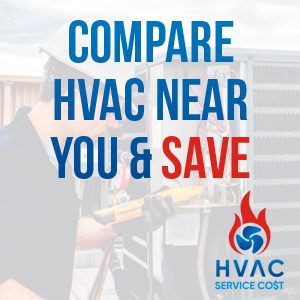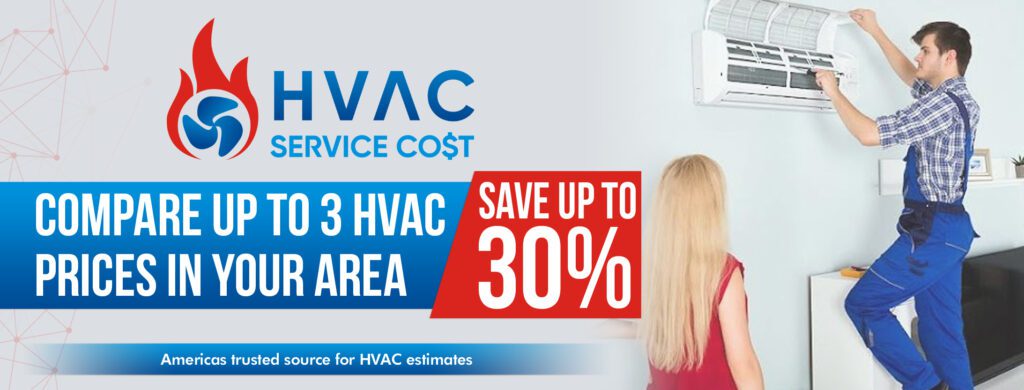
How to Save Money on HVAC Repairs and Maintenance
HVAC systems are essential for providing comfort and good air quality in homes and businesses. However, keeping your HVAC system in good condition can be expensive, especially when it comes to repairs and maintenance. Fortunately, there are ways to save money on HVAC services without sacrificing quality or performance. In this article, we’ll explore some of the best ways to reduce your HVAC service costs.
COMPARE QUOTES NOWSchedule Regular Maintenance
One of the most effective ways to save money on HVAC services is to schedule regular maintenance for your system. Regular maintenance can help identify and fix small issues before they become more significant and costly problems. It can also help your system run more efficiently, reducing energy consumption and lowering your utility bills.
Change Your Air Filters Regularly
Dirty air filters can cause your HVAC system to work harder than necessary, increasing energy consumption and service costs. By changing your air filters regularly, you can help your system run more efficiently and reduce the risk of breakdowns or other problems.
Invest in a Programmable Thermostat
Programmable thermostats allow you to set your HVAC system to automatically adjust the temperature based on your schedule and preferences. This can help reduce energy consumption and service costs by ensuring that your system isn’t working harder than necessary when you’re not home or don’t need heating or cooling.

Consider Upgrading Your System
While upgrading your HVAC system can be a significant upfront cost, it can also lead to long-term savings by reducing energy consumption and service costs. Newer systems are often more efficient and require less maintenance than older models, making them a worthwhile investment for many homeowners and businesses.
Compare Prices and Services
When it comes to choosing an HVAC service provider, it’s essential to compare prices and services to ensure that you’re getting the best value for your money. Be sure to read reviews and ask for recommendations from friends or family to find a reputable and reliable provider.
Consider DIY Repairs
While some HVAC repairs require professional expertise, there are many simple repairs that homeowners can do themselves, such as changing air filters or cleaning vents. By learning to do these repairs yourself, you can save money on service costs and potentially extend the life of your system.
COMPARE QUOTES NOWMaintaining a comfortable and efficient HVAC system doesn’t have to break the bank. By scheduling regular maintenance, changing air filters, investing in a programmable thermostat, upgrading your system, comparing prices and services, and learning to do simple repairs yourself, you can save money on HVAC services and keep your system running smoothly for years to come. Remember that prevention is always better than cure when it comes to HVAC systems, and investing in regular maintenance and repairs can pay off in the long run.




What is a Fair Price to Pay for HVAC Repairs?
In addition to the tips mentioned in the previous section, it’s essential to know what a fair price is for HVAC repairs and maintenance. You don’t want to be overcharged or undersold, so it’s crucial to do your research and know what to expect. Here are some things to consider when it comes to pricing and finding the right HVAC company for your needs.
Understanding the Cost of HVAC Repairs
The cost of HVAC repairs can vary depending on the severity of the problem, the age of the system, and the location of the repair. Some repairs may be as simple as replacing a part or cleaning a filter, while others may require more extensive work or even a complete system replacement.
On average, homeowners can expect to pay anywhere from $150 to $1,500 for HVAC repairs, depending on the type and severity of the problem. However, it’s important to note that some repairs may cost more, especially if emergency service is required. Some common HVAC problems and the cost to fix them:
- Replacing a thermostat: $150–$300
- Replacing a heating/cooling unit: $400–$1,500
- Replacing a fan motor: $200–$500
- Cleaning or replacing an air filter: $50–$100
What to Look for in an HVAC Company
When choosing an HVAC company, it’s important to find one that is reputable, reliable, and experienced. Here are some things to look for when selecting an HVAC company:
- Licenses and certifications: Make sure the company is licensed and certified to perform HVAC services in your area.
- Experience: Look for a company with years of experience and a track record of satisfied customers.
- References and reviews: Ask for references from previous customers and check online reviews to get a sense of the company’s reputation.
- Insurance: Make sure the company is fully insured and bonded to protect you from any liability or damages that may occur during the repair process.
- Guarantees: Look for a company that offers guarantees or warranties on their workmanship to ensure quality service.




Tips for Negotiating Prices
When it comes to negotiating prices for HVAC services, there are a few tips to keep in mind:
- Get multiple quotes: Always get multiple quotes from different companies to compare prices and services.
- Be upfront about your budget: Let the company know your budget upfront to avoid any surprises or hidden fees.
- Ask about discounts or promotions: Some HVAC companies offer discounts or promotions for new customers or referrals, so be sure to ask about any available discounts.
- Consider bundled services: Some companies offer bundled services or maintenance plans that can save you money in the long run, so be sure to ask about these options.
Saving money on HVAC repairs and maintenance requires a combination of preventive measures, research, and negotiation skills. By scheduling regular maintenance, changing air filters, investing in a programmable thermostat, upgrading your system, comparing prices and services, and finding the right HVAC company for your needs, you can keep your system running smoothly and save money in the process. Remember, the key is to be proactive and stay on top of your system’s maintenance needs to avoid costly repairs later down the line.
COMPARE QUOTES NOW10 HVAC Maintenance Tips to Increase Your System’s Lifespan
Maintaining your HVAC system is essential for both its efficiency and longevity. Regular check-ups and some basic care can save you money and prevent inconvenient breakdowns. Here are 10 tips to help you maintain your HVAC system and extend its lifespan:
1. Change the Air Filters Regularly
- Dirty air filters restrict airflow and make your system work harder. Change them every 1-3 months to keep your system running smoothly.
2. Schedule Regular Professional Maintenance
- Having a professional HVAC technician service your system at least once a year ensures that potential issues are caught early, preventing costly repairs later on.
3. Inspect and Clean the Condenser and Evaporator Coils
- Dirty coils reduce efficiency and cause the system to run longer. Clean them at least once a season to improve performance.
4. Keep Vents and Grills Unblocked
- Make sure that furniture, curtains, or other items aren’t blocking the vents, as this restricts airflow and reduces efficiency.




5. Check and Seal Ductwork
- Leaky ducts can lose up to 30% of conditioned air. Seal gaps and insulate ducts to maintain pressure and prevent energy loss.
6. Maintain the Outdoor Unit
- Keep the area around your outdoor unit clear of debris, leaves, and shrubbery. This ensures optimal airflow and performance.
7. Install a Programmable Thermostat
- Using a programmable thermostat allows you to control the temperature efficiently, reducing wear and tear on your system.
8. Monitor the Refrigerant Levels
- Incorrect refrigerant levels can decrease efficiency. Have a professional check and adjust the levels as needed.
9. Keep the Drain Lines Clear
- Clogged drain lines can cause water leaks and moisture problems. Flush the lines regularly and check for blockages.
10. Listen for Unusual Sounds
- Squeaking, grinding, or other unusual noises might be a sign of problems. If you hear something out of the ordinary, call a professional to inspect the system.
By following these maintenance tips, you can increase the lifespan of your HVAC system, enhance its efficiency, and reduce the risk of unexpected breakdowns. Remember, investing in regular maintenance not only ensures the longevity of your system but also translates into savings on your energy bills. Regular maintenance by a professional HVAC technician can also help identify potential problems early, allowing you to address them before they escalate into major issues.




HVAC Emergency? Here’s What to Do Before Help Arrives
An HVAC emergency can be an alarming and uncomfortable situation, especially if it occurs during extreme temperatures. While it’s essential to call a professional HVAC service provider to address the problem, there are some steps you can take to manage the situation before help arrives:
1. Shut Off the System
- If you notice strange noises, smells, or other indications of a serious problem, shut off the HVAC system immediately to prevent further damage.
2. Check the Breaker Box
- If the system is completely unresponsive, check the breaker box. Sometimes, the solution is as simple as resetting a tripped circuit breaker.
3. Assess and Report the Problem
- Try to identify the issue if you can. Is there a particular sound, smell, or other signs of malfunction? Provide this information to the HVAC technician, as it may help them diagnose the problem more quickly.
4. Avoid DIY Repairs
- While it might be tempting to try and fix the issue yourself, improper handling can worsen the situation or even cause personal injury. Leave the repairs to a professional.
5. Keep Doors and Windows Closed (or Open, Depending on the Situation)
- If it’s a heating issue in winter, keep doors and windows closed to retain warmth. Conversely, if it’s a cooling issue in summer, you may wish to open windows to let in fresh air.
6. Utilize Fans or Space Heaters if Needed
- If the temperature in your home becomes uncomfortable, use fans to circulate air or space heaters to provide temporary warmth.
7. Keep the Area Around the System Clear
- If the issue is with the outdoor unit, ensure that the area is clear of debris, furniture, or other objects that might hinder the technician’s access.
8. Prepare for the Technician’s Arrival
- Clear the path to the HVAC system and make sure that the technician will have easy access to all necessary areas.
9. Stay Calm and Patient
- Remember that help is on the way. Keep the HVAC service provider’s contact information handy and don’t hesitate to ask them for guidance over the phone if needed.




An HVAC emergency can be a stressful situation, but taking these steps can help you manage the issue effectively until professional help arrives. Always prioritize safety, and don’t hesitate to reach out to your HVAC service provider for guidance and support. It’s their job to ensure that your system is up and running smoothly, and they have the expertise to handle the problem efficiently and safely.
What HVAC System Has the Longest Lifespan? A Look at Some of the Best HVAC Systems
The longevity of an HVAC system depends on various factors such as quality, maintenance, and usage. While the average lifespan of a standard HVAC system ranges from 15 to 20 years, some systems can last much longer with proper care. Below are some insights into some of the best HVAC systems and their expected lifespans:
Geothermal HVAC Systems
Geothermal HVAC systems are known for their efficiency and longevity. By harnessing the earth’s stable temperature, they provide heating and cooling with reduced energy consumption. With proper maintenance, geothermal systems can last:
- Heat Pump: 20-25 years
- Ground Loop: Up to 50 years
Traditional Central Air Systems
These are the most common HVAC systems used in residential properties. Quality brands and regular maintenance can greatly influence their lifespan:
- Furnace: 15-20 years
- Air Conditioner: 15-20 years
- Heat Pump: 15-20 years
Ductless Mini-Split Systems
Ductless mini-split systems offer flexibility and efficiency and are often used in homes without existing ductwork. The lifespan can vary based on the brand and usage:
- Individual Units: 15-20 years
Top Brands to Consider
When considering the purchase of a new HVAC system, it’s worth looking into reputable brands known for quality and longevity. Some top-rated brands include:
- Trane: Well-known for reliability and efficiency, Trane HVAC systems often last 20 years or more with proper maintenance.
- Carrier: Carrier offers a wide range of HVAC products that are celebrated for their durability and performance, often lasting up to 20 years.
- Lennox: With a focus on energy efficiency and innovative technology, Lennox systems are built to last, often exceeding the 20-year mark.
- Daikin: Daikin’s ductless systems are praised for their quality and can offer an impressive lifespan of up to 20 years.



The lifespan of an HVAC system can vary widely based on the type, quality, and maintenance practices. Investing in a quality brand and following regular maintenance schedules can significantly extend the life of the system.
Keep in mind that while these lifespans are typical, actual longevity can vary based on usage, location, and other individual factors. Always consult with a trusted HVAC professional to select the system that best fits your needs and to ensure it’s maintained properly for maximum lifespan and efficiency.
Understanding Energy Efficiency Ratings: Save Money and Extend Lifespan
A key factor to consider when evaluating the longevity and cost-effectiveness of an HVAC system is its energy efficiency rating. More efficient systems can reduce your energy bills and often last longer due to less wear and tear. Here’s what to know:
SEER Rating (Seasonal Energy Efficiency Ratio)
The SEER rating measures the cooling efficiency of air conditioners and heat pumps. A higher SEER number indicates greater efficiency.
- Standard Efficiency: SEER 13-15
- High Efficiency: SEER 16-20+
- Energy Star Certified: Systems with the Energy Star label meet strict energy efficiency guidelines.
AFUE Rating (Annual Fuel Utilization Efficiency)
AFUE measures the efficiency of a furnace, telling you how much fuel is converted to heat. Higher percentages mean more efficient heating.
- Standard Efficiency: 80% AFUE
- High Efficiency: 90%+ AFUE
HSPF Rating (Heating Seasonal Performance Factor)
HSPF is used for heat pumps, indicating the efficiency of the heating mode. Like SEER, a higher HSPF means better efficiency.
- Good Efficiency: HSPF 8-9
- Great Efficiency: HSPF 9+




Regular Maintenance: A Must for Longevity and Efficiency
One of the most crucial elements in extending the lifespan of an HVAC system, regardless of type or brand, is regular maintenance. Here are some essential maintenance tasks:
- Seasonal Inspections: Professional inspections before the heating and cooling seasons can catch small issues before they become big problems.
- Filter Changes: Regularly changing the air filters can enhance efficiency and prevent system overload.
- Cleaning and Lubrication: Keeping components clean and lubricated can prevent unnecessary wear and tear.
- Monitoring Efficiency: Regularly assessing the system’s energy consumption can indicate when maintenance or repairs are needed.
Investing in Smart Technologies
Modern smart thermostats and controls allow for more precise temperature management, reducing wear on the system and often resulting in energy savings. These technologies can be a valuable part of a long-lasting and efficient HVAC system.
Selecting an HVAC system with an eye on longevity involves understanding not only the type and brand but also energy efficiency ratings and the importance of regular maintenance. Consider working with a knowledgeable HVAC professional who can guide you in choosing the right system for your specific needs and climate. With proper care and attention to efficiency, your HVAC system can provide reliable comfort for many years to come.
Recognizing Common HVAC Issues: Early Detection for Long-term Success
Understanding common problems that might occur with an HVAC system can be key to preventing costly breakdowns and prolonging the lifespan of the system. Here’s what to watch out for:
1. Thermostat Malfunctions
- Symptoms: Inconsistent temperatures, system not starting.
- Solution: Check thermostat settings and batteries, and consult with a technician if the issue persists.
2. Leaking Refrigerant
- Symptoms: Reduced cooling efficiency, hissing noises.
- Solution: Call a professional to locate the leak and replenish the refrigerant.
3. Frozen Evaporator Coils
- Symptoms: Poor cooling, buildup of ice on the coils.
- Solution: Replace filters, clear blockages, and consult a technician.
4. Faulty Fans
- Symptoms: Reduced airflow, noises from the fans.
- Solution: Inspect for debris, and contact a technician if necessary.
5. Heating System Ignition Problems
- Symptoms: Intermittent or failed heating.
- Solution: Professional inspection and repair are usually required.




Upgrade Options: Increasing Efficiency and Comfort
Sometimes an older system can benefit from specific upgrades that enhance efficiency and comfort, including:
Zoning Systems
Creating different heating and cooling zones within the property can save energy and enhance comfort.
COMPARE QUOTES NOWAir Purifiers and Humidifiers
Integrating air quality solutions can improve health and well-being, particularly in extreme weather conditions.
Energy Recovery Ventilators (ERVs)
ERVs help in ventilating your home, maintaining humidity levels, and saving energy.
The Importance of a Qualified HVAC Professional
Choosing the right professional for installation, maintenance, and repairs is a critical aspect of keeping an HVAC system operating efficiently and reliably. Look for:
- Licenses and Certifications: Ensure that the technician is licensed and certified by relevant authorities.
- Experience with Your System: Ensure that the professional has experience with the specific type and brand of your HVAC system.
- Transparent Pricing: An honest professional will provide clear pricing, including any potential additional costs for unexpected issues.
The longevity and efficiency of an HVAC system rely heavily on understanding how it operates, recognizing common issues, considering potential upgrades, and working with qualified professionals. Regular maintenance, inspections, and staying aware of the system’s performance can contribute to a comfortable living environment and may save money in the long run by avoiding unnecessary repairs or early replacement. Whether you’re a homeowner looking to extend the life of your existing system or a business owner aiming for optimal performance in a large-scale operation, these insights can guide your decision-making and daily care practices.




Seasonal HVAC Maintenance: Adapting to Weather Changes
Your HVAC system needs to adapt to the different weather conditions throughout the year. Here’s how seasonal maintenance can help:
COMPARE QUOTES NOWSpring
In spring, it’s all about preparing your HVAC system for the hot summer months.
- Check and Clean Filters: Ensuring your filters are clean can improve efficiency.
- Inspect Outdoor Units: Remove any debris that might have gathered around the outdoor units.
- Schedule a Professional Tune-up: A professional can identify any underlying issues that might become problematic in summer.
Summer
During the scorching summer months, your HVAC system works overtime.
- Monitor Refrigerant Levels: Adequate refrigerant levels are crucial for efficient cooling.
- Clean Condensate Drain Lines: Clearing these lines can prevent water leaks.
- Check Thermostat Calibration: Ensure that your thermostat is working correctly to avoid unnecessary energy consumption.
Autumn
As the weather cools, it’s time to prepare for winter.
- Inspect Heating Elements: Make sure that your heating system is ready for winter.
- Clean and Adjust Dampers: This can help direct airflow where it’s needed most.
- Seal Leaks in Ductwork: Sealing leaks can save energy and improve comfort.
Winter
Winter is the season when your heating system will be in constant use.
- Inspect Ignition and Burner Assembly: A proper flame is essential for efficient heating.
- Check for Drafts around Windows and Doors: Sealing drafts can help your heating system run more efficiently.
- Program Thermostat for Winter: Setting your thermostat for winter conditions can save energy.



HVAC System Upgrades for a Greener Future
With growing concerns about energy consumption and environmental sustainability, considering eco-friendly HVAC options might not only save money but also contribute to a greener future. Here are some trends to consider:
Smart Thermostats
Smart thermostats learn your heating and cooling habits and adjust accordingly, reducing energy waste.
Geothermal Heating and Cooling Systems
Utilizing the earth’s consistent underground temperature, geothermal systems can be incredibly efficient and environmentally friendly.
Solar-Powered HVAC Systems
Harnessing solar energy to power your HVAC system can reduce reliance on fossil fuels and lower energy bills.
Proper care of your HVAC system involves recognizing the specific needs at different times of the year and being aware of the latest trends in energy efficiency and environmental sustainability. It’s not just about emergency repairs; it’s about regular maintenance, inspection, and considering upgrades that align with modern demands for energy efficiency. With the right approach and the assistance of qualified professionals, your HVAC system can provide consistent comfort for years to come while adapting to the changing needs of our world.
COMPARE QUOTES NOW


Leave a Reply